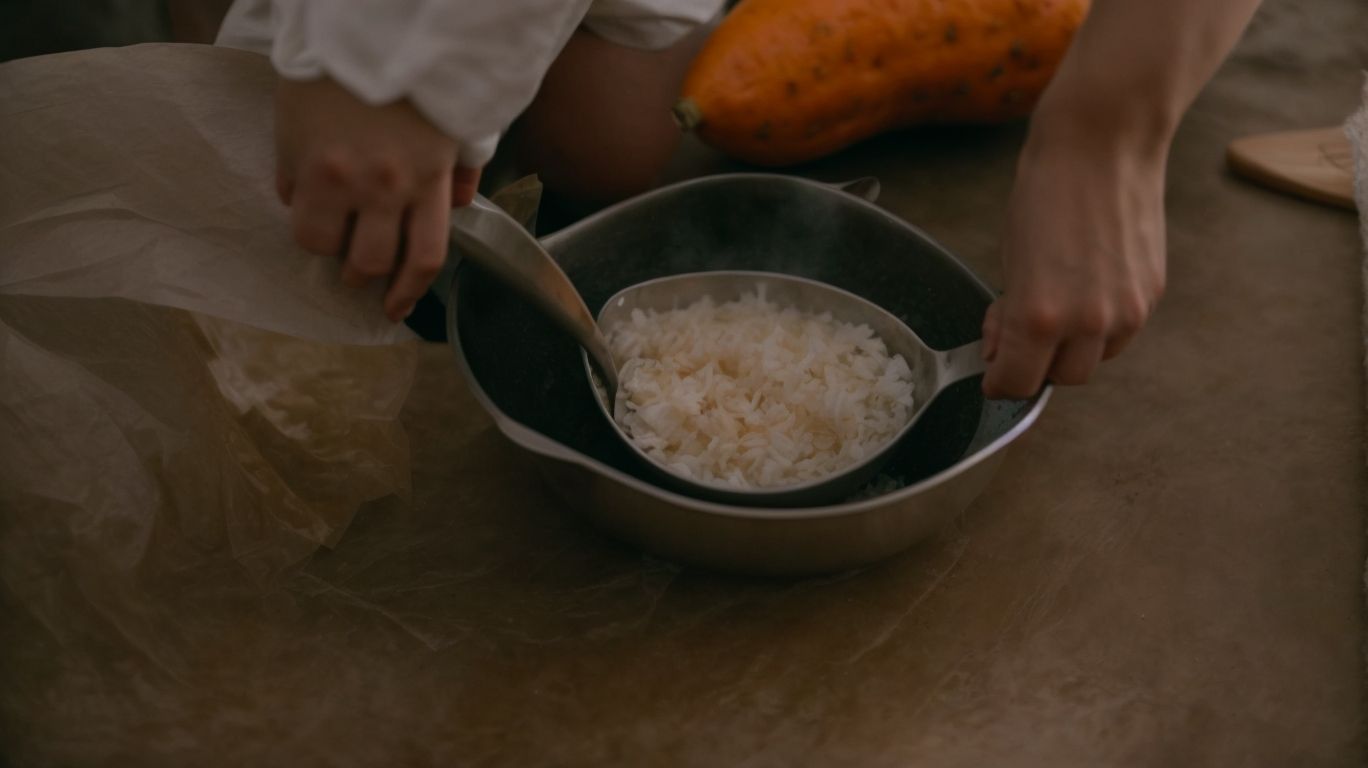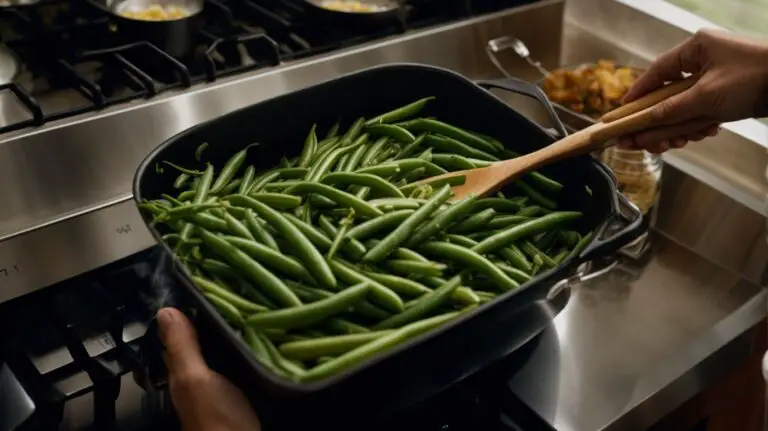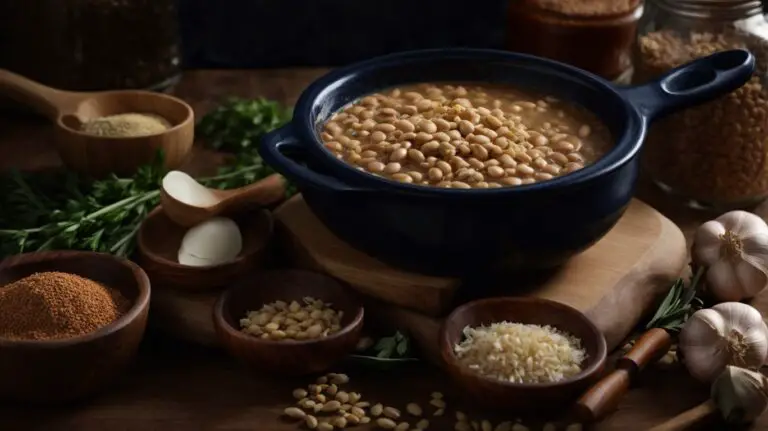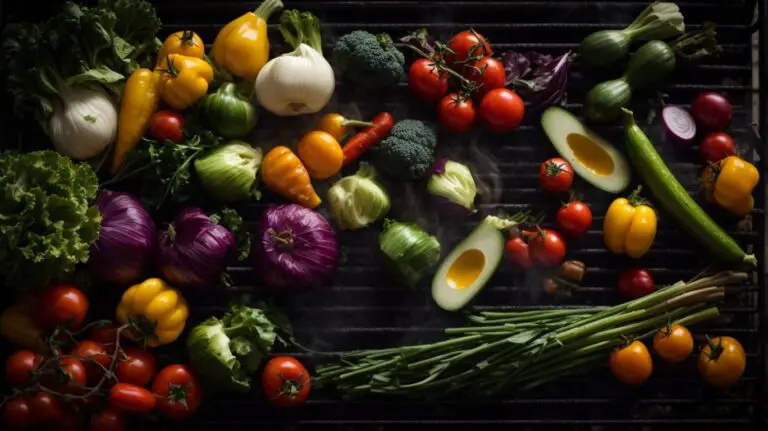How to Cook Sweet Potato for Baby?
Are you looking for a nutritious and delicious food to introduce to your baby’s diet?
Sweet potatoes are packed with essential nutrients and easy to prepare, making them a great choice for babies starting solids.
In this article, we will explore why sweet potatoes are a good food for babies, when babies can start eating sweet potatoes, the nutritional benefits of sweet potatoes, how to select and store them, various preparation methods, recipes for sweet potato puree, mixing options, serving ideas, and cooking tips.
Let’s get cooking for your little one!
Key Takeaways:
Why is Sweet Potato a Good Food for Babies?
Sweet potato is considered an excellent food choice for babies due to its rich nutrient content and numerous health benefits.
One of the key reasons why sweet potato is recommended for babies is its high nutritional value. It is packed with essential nutrients such as Vitamin A, Vitamin C, fiber, and potassium, which are crucial for the healthy growth and development of infants. Sweet potatoes are easy to digest, making them gentle on a baby’s sensitive stomach. This makes them an ideal choice for introducing solid foods to babies, especially during the weaning phase.
When Can Babies Start Eating Sweet Potato?
Babies can typically start eating sweet potato puree around the age of 6 months, when they are ready for solid foods.
Introducing sweet potatoes at this age is beneficial as they are a great source of essential nutrients like vitamin A, C, potassium, and fiber that are crucial for a baby’s growth and development. The smooth texture of sweet potato puree makes it easy for babies to digest, making it a suitable choice for the early stages of their solid food journey. The subtle sweetness of sweet potatoes can help in introducing new flavors to babies’ palates and encouraging them to explore different tastes and textures.
What Are the Nutritional Benefits of Sweet Potato for Babies?
Sweet potatoes offer a range of essential nutrients for babies, including beta carotene, vitamins, and minerals that support growth and development.
These nutrients play a crucial role in enhancing vision health, immune system function, and overall well-being in infants.
Sweet potatoes are a great source of fiber, which aids in digestive health and prevents constipation in young children.
The natural sweetness of sweet potatoes also makes them a delicious and easy-to-prepare option for introducing solid foods to babies, helping develop their palate and encouraging healthy eating habits from a young age.
How to Select and Store Sweet Potatoes for Baby Food?
When choosing sweet potatoes for baby food, opt for organic varieties to minimize exposure to contaminants and store them in a cool, dry place.
Organic sweet potatoes are free from harmful pesticides and chemicals, ensuring the safety of your little one.
Storing them in a cool, dry place helps maintain their freshness and nutritional value. It is essential to inspect them for any signs of spoilage before use as mold or discoloration can indicate the presence of contaminants.
Keeping sweet potatoes away from strong-smelling foods can help prevent them from absorbing odors. For added protection, consider storing them in a breathable container or paper bag.
Remember to wash and peel sweet potatoes thoroughly before cooking to further reduce any potential risks of contamination.
How to Prepare Sweet Potato for Baby Food?
Preparing sweet potatoes for baby food can be done through various methods such as baking, steaming, boiling, or microwaving to retain nutrients and flavor.
When baking sweet potatoes for baby food, you can maintain their natural sweetness and nutrients. Simply scrub and pierce the sweet potatoes, then bake them until tender.
Steaming is another gentle method that helps lock in essential vitamins and minerals.
Boiling sweet potatoes can be quick and easy – just chop them into small pieces, cover with water, and simmer until soft.
Microwaving is a convenient option, where you can place the sweet potatoes in a microwave-safe dish with a little water and cook until tender.
Baking Method
The baking method is an excellent way to prepare sweet potatoes for baby food, as it helps retain essential nutrients and enhances the natural sweetness of the vegetable.
Preheat the oven to 375°F (190°C) and line a baking sheet with parchment paper.
Wash and scrub the sweet potatoes thoroughly, then pat them dry. Cut the sweet potatoes into small chunks or slices to ensure even cooking.
Place the sweet potato pieces on the prepared baking sheet, drizzle with a touch of olive oil, and sprinkle with a pinch of salt. Toss the pieces gently to coat them evenly. Bake in the preheated oven for about 25-30 minutes, or until the sweet potatoes are tender and slightly caramelized.
Once baked, allow the sweet potatoes to cool before pureeing them into a smooth consistency for the baby food. This method locks in the nutrients and fiber, making it a healthy choice for your little one’s diet.
Steaming Method
Steaming sweet potatoes is a gentle cooking method that preserves vitamins and minerals, making it a nutritious option for baby food.
When sweet potatoes are steamed, they retain more of their nutrients compared to other cooking methods like boiling or frying. This cooking technique helps maintain the integrity of essential vitamins such as vitamin A and vitamin C, which are crucial for a growing baby’s development. Steamed sweet potatoes are easy to digest, making them a gentle choice for little tummies. The soft texture that steaming produces is ideal for pureeing or mashing, creating smooth and creamy baby-friendly meals.
Boiling Method
Boiling sweet potatoes is a simple cooking method that can help maintain essential minerals while creating a soft texture suitable for baby consumption.
When boiling sweet potatoes for baby food, it is crucial to retain as many nutrients as possible. The boiling process, when done correctly, can help preserve the minerals present in the sweet potatoes, making it a nutritious choice for growing infants. Retaining these minerals during cooking ensures that your baby benefits from the wholesome goodness of sweet potatoes.
Texture is another important aspect to consider when preparing sweet potatoes for babies. Boiling them allows you to achieve a soft and mushy consistency, which is ideal for young ones who are just starting to explore solid foods. This gentle cooking method ensures that the sweet potatoes are easy to mash or puree, making them suitable for babies who are transitioning from pureed to slightly textured foods.
Boiling sweet potatoes is a convenient and straightforward process, making it a practical choice for busy parents. Simply peel, chop, and boil the sweet potatoes until they are tender. Once cooked, you can easily mash or puree them to the desired consistency, ready to be served to your little one. This method is not only quick and easy but also allows you to prepare a batch of sweet potatoes in advance, saving you time and effort when it comes to meal preparation for your baby.
Microwaving Method
Microwaving sweet potatoes is a quick and convenient cooking method that helps preserve antioxidants and nutrients for baby food.
When microwaving sweet potatoes, it is essential to choose the right type of sweet potato that is fresh and free from any mold or soft spots. Wash the sweet potato thoroughly before cooking to remove any dirt residue.
Microwaving sweet potatoes also helps in retaining more nutrients compared to other cooking methods like boiling, as the cooking time is significantly reduced. To ensure safety for baby food, always test the temperature of the sweet potato after microwaving to avoid burning the delicate mouth of babies.
How to Make Sweet Potato Puree for Baby?
Creating sweet potato puree for babies is a simple process that involves cooking the vegetable until soft and blending it into a smooth, easy-to-eat texture.
To start, wash and peel the sweet potatoes, then cut them into small, uniform pieces to ensure even cooking. Boil or steam the sweet potato chunks until they are soft and easily pierced with a fork. Once cooked, allow the sweet potatoes to cool slightly before transferring them to a blender or food processor.
When blending, add a little water or breast milk to achieve your desired consistency, whether you prefer a thicker or thinner puree. Blend until the mixture is smooth and free of any lumps, adjusting the liquid content as needed.
For flavor variations, consider adding a pinch of cinnamon or nutmeg for a warm spice or a dash of vanilla extract for a subtle sweetness. You can also mix in other pureed fruits like apples or pears to introduce new flavors and nutrients to your baby’s diet.
Basic Sweet Potato Puree
A basic sweet potato puree is a versatile option for baby food, offering a simple and nutritious introduction to this wholesome vegetable.
It requires only a few basic ingredients to create this delicious and healthy puree, making it a cost-effective and easy-to-make choice for parents. To prepare, start by washing and peeling the sweet potatoes, then cutting them into small chunks for quicker cooking. Next, steam or boil the sweet potato pieces until they are tender enough to mash. Using a blender or food processor, mash the cooked sweet potatoes into a smooth consistency. Sweet potatoes are rich in essential nutrients like Vitamin A and fiber, making them a fantastic option for early baby feeding.
Sweet Potato and Apple Puree
Combining sweet potato and apple in a puree introduces complementary flavors and textures that can appeal to a baby’s developing palate.
When creating this dynamic blend, the natural sweetness of the sweet potato pairs harmoniously with the slight tartness of the apple, offering a delightful balance that can intrigue even the pickiest eaters. What’s more, this puree teems with essential nutrients like Vitamin A, Vitamin C, and fiber, crucial for a growing infant’s overall development.
Considering the versatility of this puree, incorporating cinnamon or a dash of nutmeg can elevate the taste profile, adding a warm, comforting undertone to the blend. Experimenting with other fruits like pear or banana can introduce new dimensions to the puree, creating a diverse array of flavors to keep mealtime engaging and exciting for your little one.
Sweet Potato and Carrot Puree
Blending sweet potato and carrot into a smooth puree offers a colorful and nutrient-rich option for baby food that combines the benefits of both vegetables.
The vibrant orange hues of sweet potato and carrot not only appeal to the eyes but also indicate the presence of beta-carotene, a precursor to Vitamin A, essential for healthy vision and immune system development. Sweet potatoes add a natural sweetness, while carrots bring a subtle earthy flavor, creating a well-balanced taste profile that babies often enjoy.
When introducing diverse flavors to baby food, incorporating purees made from a variety of veggies helps expand their palate and exposes them to different textures and tastes early on. The nutritional benefits of this puree include essential vitamins, minerals, and dietary fiber, supporting overall growth and digestive health.
What Other Foods Can Be Mixed with Sweet Potato for Baby?
Sweet potato pairs well with various ingredients like avocado, banana, and chicken to create unique and nutritious blends for baby meals.
Avocado can add a creamy texture and healthy fats to sweet potato puree, perfect for introducing different textures to your baby’s diet.
Pairing sweet potato with banana offers a naturally sweet and smooth consistency, ideal for babies transitioning to solid foods.
Adding chicken to sweet potato introduces protein and iron, crucial for your baby’s growth and development.
Consider blending these ingredients together for a flavorful batch of baby food that combines essential nutrients and delightful tastes.
Avocado and Sweet Potato Puree
Combining avocado and sweet potato in a smooth puree offers a creamy and nutrient-dense option that is rich in healthy fats and essential nutrients for baby’s growth.
Avocado provides a smooth and buttery texture while sweet potato adds a natural sweetness, creating a balanced flavor profile that babies tend to enjoy. The combination also introduces a variety of vitamins, minerals, and antioxidants critical for a developing infant’s body. This puree is gentle on the stomach and easy to digest, making it an ideal choice for introducing solid foods to little ones. When pureed together, these ingredients complement each other, making for a harmonious blend that can help in expanding a baby’s palate with nutritious choices.
Banana and Sweet Potato Puree
Merging banana and sweet potato in a puree introduces natural sweetness and a velvety texture that appeals to babies while providing essential vitamins and minerals.
Combing these two ingredients not only enhances the flavor but also creates a medley of nutrients crucial for a growing baby’s development. Bananas bring a creamy consistency and a rich source of potassium, while sweet potatoes contribute a vibrant hue and a burst of beta-carotene, essential for eye health. The blend of these ingredients results in a smooth puree that’s gentle on the palate and easy for young ones to digest.
Chicken and Sweet Potato Puree
Incorporating chicken and sweet potato into a puree adds protein-rich elements and savory flavors that contribute to a balanced and wholesome meal for babies.
When preparing this nutritious puree for your little one, you are not only introducing them to the benefits of a protein-packed diet but also exposing their taste buds to a delightful blend of flavors. The creamy texture of sweet potato complements the tender chicken, offering a pleasing taste experience that can help develop their palate. This combination of ingredients not only provides essential nutrients for healthy growth but also serves as a stepping stone for introducing meat-based options into their diet.
How to Serve Sweet Potato for Baby?
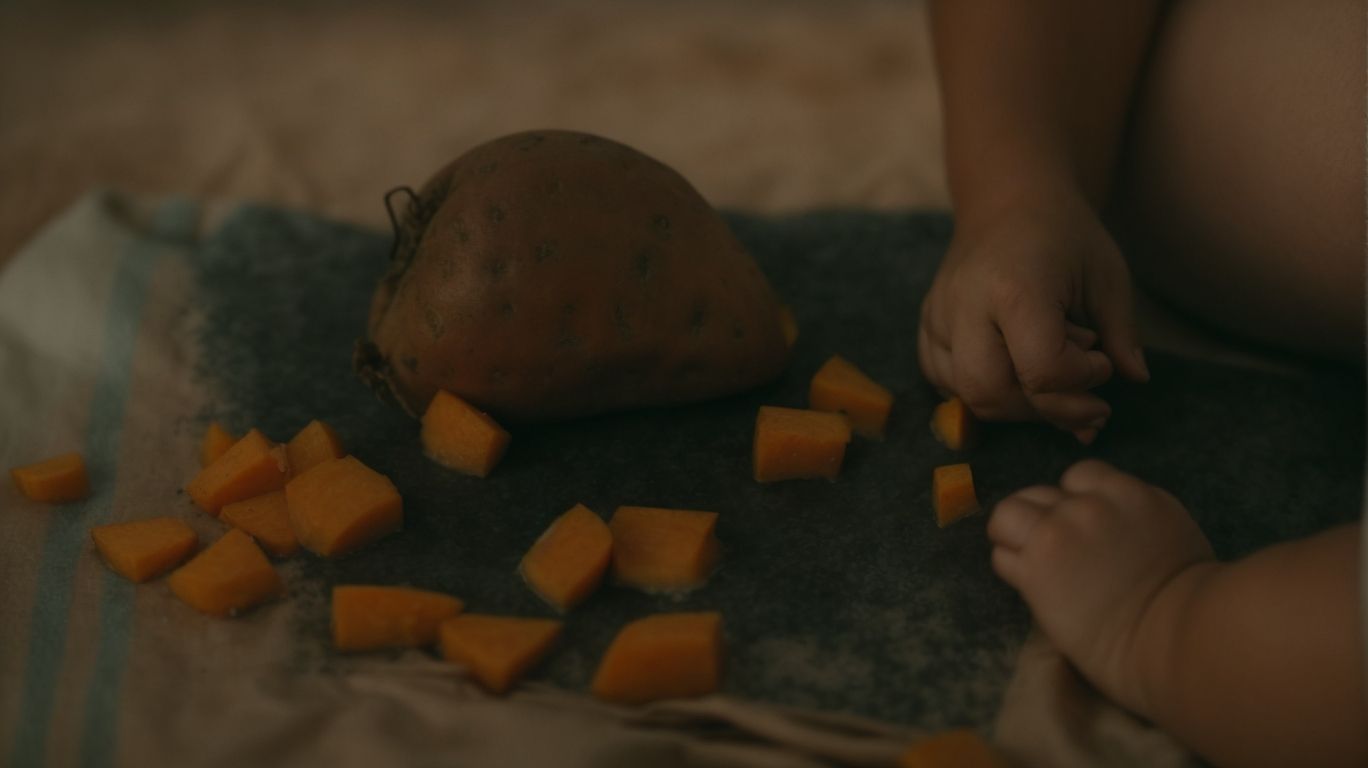
Credits: Poormet.Com – Albert Jackson
Sweet potatoes can be served to babies in various ways, including as finger foods, mashed textures, or as part of tasty pancakes for a delightful meal experience.
When introducing sweet potatoes to your little one, consider starting with soft, cooked sweet potato sticks or cubes as finger foods to encourage self-feeding and enhance motor skills development. To offer a smoother consistency, try mashing the sweet potatoes with a fork or blending them into a puree, which can be easily spoon-fed. For a fun twist, you can surprise your baby with sweet potato pancakes by blending pureed sweet potatoes into pancake batter for a nutritious and flavorful mealtime treat. Experimenting with different textures and presentations can make mealtime exciting and enjoyable for your baby.
Finger Foods
Introducing sweet potato as finger foods to babies encourages self-feeding skills and offers tactile exploration while providing essential nutrients for growth and development.
When babies are introduced to sweet potatoes as finger foods, they can engage in sensory play, feeling the different textures and shapes, which can help in their cognitive development and hand-eye coordination. The vibrant color of sweet potatoes can also stimulate their visual senses, making mealtime more engaging and enjoyable. The soft yet slightly firm texture of cooked sweet potatoes can aid in oral motor skill development, promoting chewing and swallowing abilities.
By incorporating sweet potatoes into a baby’s diet, parents can ensure that their little ones receive a good dose of vitamins A and C, potassium, and fiber, all essential for overall health and immune function. These nutrients support optimal growth, brain development, and a healthy digestive system, laying a strong foundation for lifelong health.
Mashed Sweet Potato
Mashed sweet potato presents a soft and easy-to-eat option for babies transitioning to solid foods, offering a comforting texture and familiar taste.
When preparing mashed sweet potato for babies, it’s essential to ensure the texture is smooth and easily digestible. Begin by steaming or boiling the sweet potato until it is tender enough to be mashed with a fork or potato masher. For added flavor, consider mixing in a small amount of breast milk, formula, or a dash of cinnamon for a tasty twist. Sweet potatoes are a fantastic source of essential nutrients like vitamin A, C, and fiber, making them a nutritious choice for your baby’s diet.
Sweet Potato Pancakes
Crafting sweet potato pancakes for babies introduces a fun and nutritious twist to mealtime, combining the goodness of sweet potatoes with the delight of fluffy pancakes.
Starting the process by cooking sweet potatoes until they are tender ensures a smooth texture without any lumps, perfect for tiny palates.
Sweet potato pancakes can be customized by adding a hint of cinnamon for a warm flavor or incorporating mashed bananas for additional natural sweetness. Ensuring the batter is well-mixed aids in creating consistent pancakes that are easy for babies to pick up and enjoy. Offering them in bite-sized pieces or fun shapes can add an element of excitement to the meal, making it more enticing for little ones.
What are Some Tips for Cooking Sweet Potato for Baby?
When cooking sweet potatoes for babies, consider using organic varieties, gentle cooking methods, and minimal seasoning to preserve nutrients and enhance palatability.
Organic sweet potatoes are a healthier choice as they are cultivated without harmful chemicals, pesticides, or synthetic fertilizers. Opting for organic options ensures that your baby consumes food free from potential toxins.
In terms of cooking techniques, steaming or boiling sweet potatoes are gentle methods that help to retain their natural sweetness and essential nutrients. Minimizing seasoning like salt or sugar not only preserves the natural flavors but also helps in developing your baby’s palate for healthier food choices in the future.
Frequently Asked Questions
What is the best way to cook sweet potato for my baby?
The best way to cook sweet potato for your baby is by steaming or boiling it. This will help retain its nutrients and make it easier for your baby to digest.
Can I bake sweet potato for my baby?
Yes, you can bake sweet potato for your baby. Baking is also a healthy cooking method as it does not require any added fats or oils.
Can I introduce sweet potato to my baby’s diet early on?
Sweet potato is a great first food for babies as it is easy to digest and packed with nutrients. You can introduce it to your baby’s diet as early as 6 months.
How long does it take to cook sweet potato for baby?
It usually takes around 10-15 minutes to cook sweet potato for your baby through steaming or boiling. If you are baking it, it may take around 30-40 minutes depending on the size of the sweet potato.
Should I peel the sweet potato before cooking it for my baby?
Yes, it is recommended to peel the sweet potato before cooking it for your baby. This will make it easier for your baby to chew and also reduce the risk of choking.
Can I add seasoning or spices to sweet potato for my baby?
It is best to avoid adding any seasoning or spices to sweet potato for your baby, especially in the early stages of introducing solid foods. It is important to let your baby get used to the natural taste of the food first.

